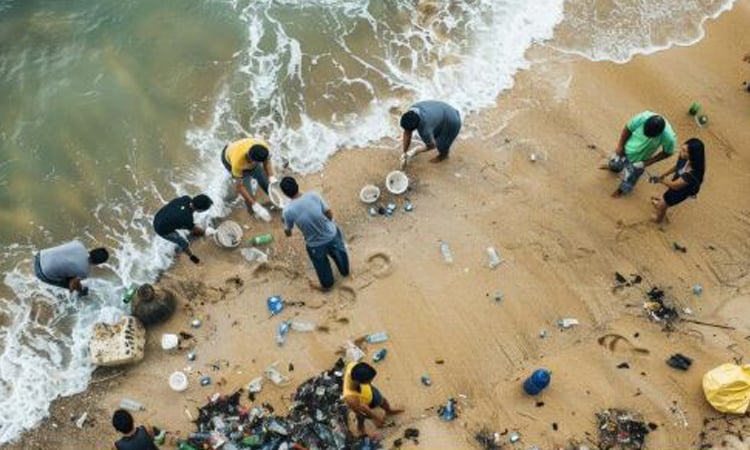News Flash
News Flash

By S M Zahid Hossain
KHULNA, June 24, 2025 (BSS) – In order to protect environment, the government has implemented different effective programmes to free the country from plastic pollution.
“Plastic pollution massively damages rivers and other water bodies including canals and marshlands as well as the Sundarbans, the world's largest mangrove forest,” an official of Department of Environment told BSS today.
Under the directive of the Ministry of Forest, Environment and Climate Change the departments including the Department of Environment (DoE), Department of Forest and Department of Marine Fisheries (DoMF) are implementing a series of programs to create a pollution-free environment, ecosystem and biodiversity of Sundarbans.
While talking to BSS, Md Sadiqul Islam, Director (Current Charge) of the Department of Environment in Khulna Division said, “Several drives are being conducted against environment polluters.”
Since the month of April this year, the DoE conducted 48 mobile courts in Khulna and seized 4,451 kgs of hazardous plastics including polythene, and realized fine of Taka 21.06 lakh,” he said.
Besides, the DoE also seized 259 air-polluting hydraulic horns and broke two brick kilns to make air pollution-free.
“Our drive is ongoing against all kinds of pollution including plastic, polythene and air as per directive of the Ministry of Environment,” he said.
Talking to BSS, Imran Ahmed, Conservator of Forest in Khulna Zone, said “We have taken the massive program to free Sundarbans from plastic pollution, as it has been posing a serious threat to both the ecosystem and biodiversity of Sundarbans, the largest mangrove forest in the world, for the last couple of decades.
During the present ban period to enter into Sundarbans, the forest men in cooperation with different groups who are working to protect Sundarbans, remain vigilant every day to prevent plastic pollution, deer poaching, smuggling and illegal resource collection from the forest.
Imran Ahmed, also said they have informed all tour operators that single-use plastics are completely banned in the Sundarbans.
"The main challenge is that plastic is entering the Sundarbans through rivers and canals of the city. We can't control the use of plastics in city areas. The authorities concerned should be more proactive in this regard," he added.
Plastic pollution caused by irresponsible tourist behaviour is wreaking havoc on Sundarban ecosystems.
Imran highlighted the detrimental effects of plastic waste thrown away by tourists, which eventually breaks down into micro plastics.
Meanwhile, Bangladesh’s Department of Marine Fisheries (DoMF) is launching an awareness programme to free the Bay of Bengal from plastic pollution that has been posing a serious threat to fishery resources, human health and the blue economy.
Md Faruk Hossain Sagar, assistant director (Ocean) of the DoMF in Chattogram, told BSS that as part of the awareness programme, fishermen, who are catching fishes at the Bay of Bengal, have been asked for not to throw plastics materials including bottles into the sea.
Officials of different relevant originations laid emphasis on taking collective efforts of all for safeguarding our environment.
They suggested avoiding use of plastic materials, which are largely responsible for environmental pollution.